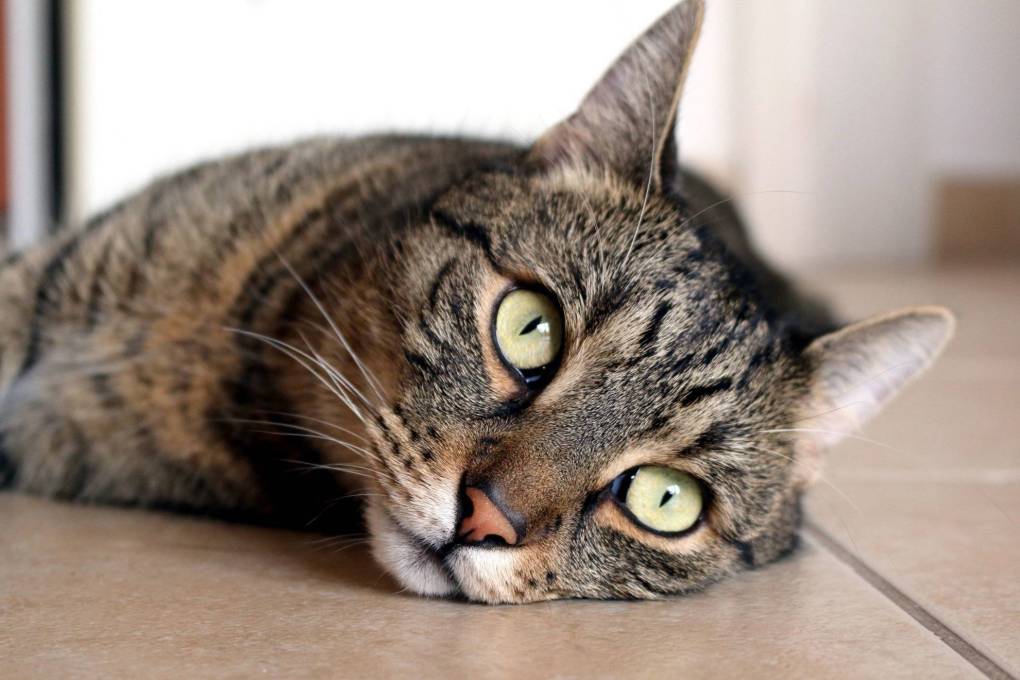It is estimated that 20 million UK workers have been temporarily forced to work from home due to the coronavirus pandemic, meaning that our furry friends have been sat by our side for several months now. Many of us are spending more time indoors due to home working or self-isolation, and our cats have become adjusted to spending every day with their beloved families who rarely venture beyond the four walls of their homes anymore.
Although our pets may feel like all their Christmases have come at once, working from home won’t last forever for many of us and this is something our pets may struggle with. So, when life returns to normal and we return to spending more of our time away from home, how can we help our pets, particularly our cats, cope with the change in company and routine?
Separation anxiety: can cats be affected by this?
In short, yes, cats can suffer separation anxiety, although this is rarer than it is in dogs. Since cats are usually very independent animals, that were likely accustomed to spending short periods alone before the coronavirus pandemic, readapting to the way life was shouldn’t prove too disruptive. While they may miss your company at first, being separated from you is something they have experienced before, so resuming to this way of like should hopefully go without a hitch.
In contrast, for cats that weren’t used to being left alone for short periods of time, a gradual return to normality could cause a problem. For certain breeds of cats such as Siamese, Burmese, and house cats, separation anxiety is more likely to occur than other breeds if they feel distanced from their guardians and people they love.

Signs that suggest my cat has separation anxiety
With this said, it is important to recognise changes in your cat’s behaviours that may be signs suggesting separation anxiety is present. A common one to note is if they spray in your home when they’re left alone. Additional signs of anxiety or distress include such behaviours as urinating, meowing persistently for attention, and over or under-grooming.
These signs of distress may lead you to think that they have forgotten basic house manners and rules, however this is most likely not the case. Although the signs mentioned above might suggest your cat is suffering separation anxiety, it is important to be certain that this is the only thing wrong with them. To ensure there isn’t anything physically wrong with your cat, it is important to take them to the vets for a check-up just to be safe.
Although the thought of our pets being sad in any way is upsetting, there are methods you can use to help prevent this when the time comes to return to work and life as usual.

How can I prevent cat separation anxiety?
Rather than making sudden changes, it is vital that small, gradual adjustments are made so that your cat isn’t shocked by the abrupt return to reality. To help successfully achieve this when the time comes, there are small steps that you can take to help your cat adjust.
The first step is not to stroke your cat every time they insist you do. Instead, try and provide your cat with a toy to play with or a puzzle toy that drops treats when they use it. You want to build up your cat’s tolerance slowly, so that when you actually return to work, your absence is less of a shock. Providing them with a distraction from your company is a baby step in the right direction.
Being in the house with your pet most of the time will likely mean that your pets will want your undivided attention, and it’s difficult not to give in to their adorable faces! However, try and delegate the care and attention you give to your cat to other members in the house. For example, if you’re always the one that feeds them or plays with them, ask others in the house to take over for a while. That way, their over-reliance on you will lessen in time.
Another way to help your cat become accustomed to your temporary absence is by purchasing some pheromone sprays. When plugged in, these will release the same deposit your cat leaves when they rub their face against your leg or furniture, helping them feel as though you are always by their side.
Medication to help severely anxious cats calm down may also be needed at first. However, this should be prescribed by your vet if necessary. Although separation anxiety can occur in cats, there could be other reasons why their behaviour seems different. For example, if you are worried that they have fleas, try using Advocate for Cats to help your cat return to being their usual, happy selves.
If the reintroduction of normal life to your furry friends is rushed, it could severely impact their mood. Although you may feel frustrated and impatient at times with your pet when gradually undergoing this adjustment, a slower pace will help acclimatise your pet, making the separation not as bad as they thought it would be after all.
Click to visit our Shop for the hassle-free Zen Clippers!



We just went away for the weekend and I watched our cats on a camera I set up. Fortunately, they all seemed fine.